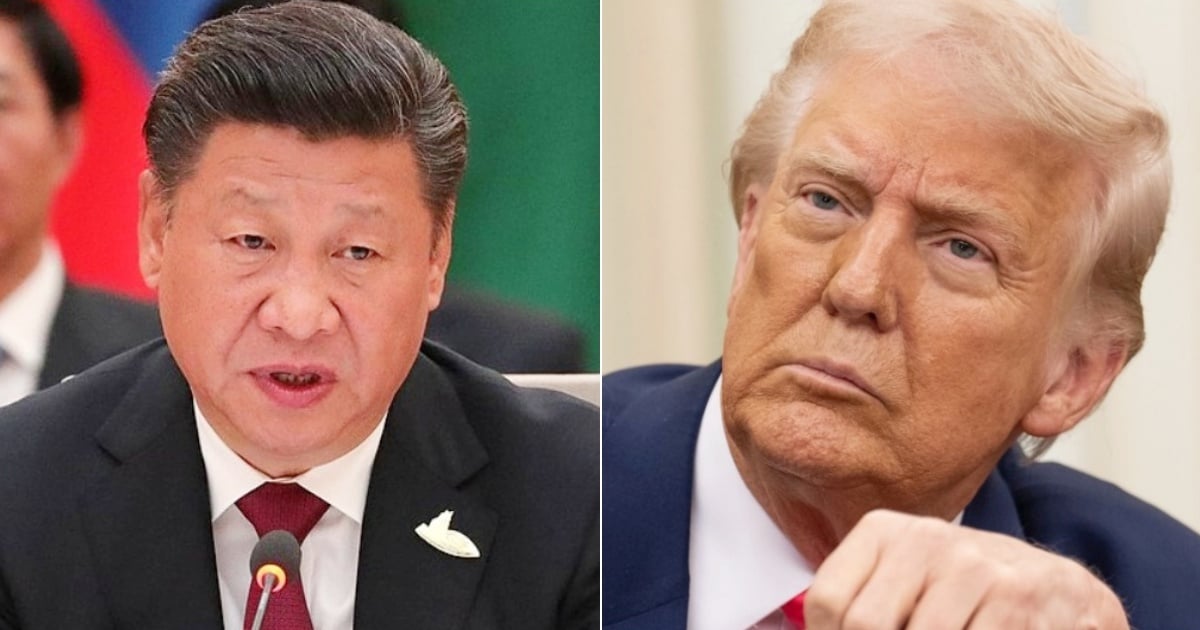The ongoing trade war between the United States and China has entered a new phase marked by heightened tension and confusion. President Donald Trump claims that the two global powers are engaged in active negotiations to reduce the steep tariffs imposed on each other, a statement that Beijing has categorically denied. This clash of assertions has not only sparked political reactions but has also rattled financial markets, which are struggling to interpret these mixed signals amid hopes for a potential de-escalation.
Trump's Assertions: "Everything Is Active"
On Tuesday, President Trump told the press that discussions with China were underway and that the high tariffs on Chinese exports would be "substantially" lowered from the current 145%. "Everything is active," he remarked when questioned about ongoing talks with Beijing. On Thursday, he reiterated that members of his administration had met with Chinese representatives earlier that morning, though he declined to specify the individuals involved. "It doesn't matter who they are. We might reveal it later, but they held meetings this morning," Trump said to reporters. These statements followed suggestions from his administration of a possible tariff reduction from 145% to a range between 50% and 65%, as reported by The Wall Street Journal.
China's Denial
Contradicting Trump's remarks, Beijing has dismissed the claims of ongoing negotiations. On Thursday, He Yadong, a spokesperson for the Ministry of Commerce, stated there were no current trade talks. "China has taken note of some recent media reports. [...] I would like to emphasize that there are no ongoing trade negotiations with the United States. Any assertions about progress in trade talks are purely speculative and lack factual basis," he said, as covered by international media. He further criticized U.S. statements, suggesting that "any consultations and negotiations should be conducted on the basis of mutual respect and fairness," and dismissed claims of progress as "as absurd as trying to catch the wind." Guo Jiakun, a spokesperson for the Ministry of Foreign Affairs, went further by labeling Trump's comments about "daily" contacts as "false information."
"As far as I know, China and the United States have not held consultations or negotiations regarding tariffs, let alone reached an agreement," Guo said in a statement published by the Global Times. "If the United States genuinely seeks to resolve issues through dialogue and negotiation, it should abandon its maximum pressure approach, cease threats and coercion, and engage in talks with China based on equality, mutual respect, and reciprocity," he added.
The Background of the Tariff Dispute
The trade conflict between these two superpowers has intensified in recent months with Washington's imposition of 145% tariffs on Chinese goods. In retaliation, Beijing has levied 125% tariffs on U.S. imports and enacted non-tariff measures like restricting rare earth exports and blocking Boeing purchases. Additionally, China has filed several complaints with the World Trade Organization. The Chinese Ministry of Commerce reiterated that the root of the issue lies in the unilateral measures taken by the U.S. "The unilateral tariff increases were initiated by the United States. If the United States truly wants to resolve the issue, it should heed the rational voices of the international community and all parties within its country, completely cancel all unilateral tariff measures against China, and find ways to resolve differences through fair dialogue," stated the ministry spokesperson, as reported by AP.
Market Reactions: Cautious Optimism
Despite the exchange of accusations, financial markets responded optimistically to even the faintest signs of a possible easing of tensions. The S&P 500 rose by 2% on Thursday, reaching its highest level since April 3, while European indices like the Euro Stoxx 600 and the German DAX were on track for a second consecutive week of gains. In Asia, Japan's Nikkei surged more than 2%, and South Korea's Kospi climbed over 1%. Hong Kong's Hang Seng Index increased by 1.5%, recovering some of its recent losses. This rebound was further buoyed by statements from the People's Bank of China, which reaffirmed its loose monetary policy to support growth amid the trade tensions.
An Uncertain Future
The apparent attempt by Donald Trump to project optimism starkly contrasts with Beijing's firm denial, which not only dismisses any progress but ridicules it as illusory. Far from calming, the trade war remains a landscape fraught with diplomatic and economic uncertainty. As the world's two largest economies continue their standoff, international observers and markets are confronted with an ambiguous narrative swinging between confrontation and a desire for reconciliation.
Understanding the U.S.-China Trade Conflict
What are the current tariffs imposed by the U.S. on Chinese goods?
The United States has imposed tariffs of 145% on Chinese products.
How has China responded to U.S. tariffs?
China has retaliated with 125% tariffs on U.S. imports and has taken non-tariff measures, such as restricting rare earth exports and blocking purchases from Boeing.
What is Beijing's stance on the current trade negotiations?
Beijing denies any ongoing trade negotiations with the United States and labels claims of progress as speculative and lacking factual basis.
